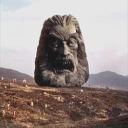Yahoo Answers is shutting down on May 4th, 2021 (Eastern Time) and beginning April 20th, 2021 (Eastern Time) the Yahoo Answers website will be in read-only mode. There will be no changes to other Yahoo properties or services, or your Yahoo account. You can find more information about the Yahoo Answers shutdown and how to download your data on this help page.
Trending News
Why do radioactive decay starts after rock solidifies?
I can't understand something how come if heat doesn't effect the radioactivity, why do rock only starts to decay after they solidify?
Wouldn't it be normal for molten rocks to decay as well even if you consider mixing as an issue over 4.5 billion years most of the molten magma should have decayed already or at least will be at its half life.
Some reference to why molten magma doesn't decay and why when it forms to a rock it starts decaying would be great.
4 Answers
- NygdanLv 59 years agoFavorite Answer
It doesn't start after the rock solidifies. Radioactive isotopes decay whether they are in molten magma, solid rock, outer space, etc.
You may be confused about how radiometric dating only gives us information about the time since a mineral solidified. It only gives information after that point because prior to solidification, the radioactive isotopes and the daughter isotopes can flow all over the place. In order for radiometric dating to work you must have a closed system, which for rocks is usually going to mean a solid rock that hasn't undergone alteration (some types of alteration aren't really melting the whole rock, but can allow isotopes to escape or be added).
- ?Lv 79 years ago
Zordoz is correct despite the negative vote - radioactivity goes on all the time - some of the products are gaseous or otherwise can migrate when it is molten - once it solidifies, the breakdown products are trapped and the relative amounts of source and breakdown can be measured to determine age.
- ZardozLv 79 years ago
Radioisotopes decay continuously, however, it is only after the rock solidifies that the decay products are captured for measurement.
.
Source(s): [n] = 10ⁿ I'm promoting this as a convention. I encourage you all to join me. It's fast, it's fun and it's free. - CherylLv 59 years ago
Radioactive decay is the process by which an atomic nucleus of an unstable atom loses energy by emitting ionizing particles (ionizing radiation). A decay, or loss of energy, results when an atom with one type of nucleus, called the parent radionuclide, transforms to an atom with a nucleus in a different state, or to a different nucleus containing different numbers of protons and neutrons.




